
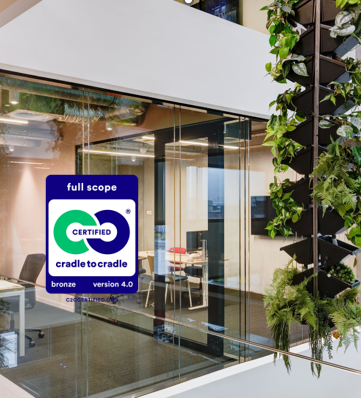
System walls in themselves are very environmentally conscious products but as a leading manufacturer of system walls Pan-All goes much further in this. For years we have had a proactive environmental policy that goes beyond simply complying with applicable legislation. Discover briefly below how we integrate environmental care into every part of our operation and organization and are consistently committed to true sustainability. Thanks to Cradle-to-Cradle certifications, our Flush system walls contribute to the sustainability performance of buildings and we help achieve credits for these certifications, including BREEAM®, LEED, WELL and HQE.



A circular product is a broad term for products consisting largely or entirely of recycled materials.
Cradle to Cradle Certified® is the leading global standard for proving circularity and sustainability.
A Cradle to Cradle (C2C) product is designed according to the principle that all used materials can be completely reused after use, without loss of value or harmful impact on people and the environment. The goal is a closed loop, where waste does not exist and raw materials serve again and again as the basis for new products.
During production, attention is paid to healthy materials, renewable energy, water management and social responsibility. Only substances that are safe for people and nature are used, so that they can either biodegrade or be infinitely recycled.
The C2C concept thus goes beyond "sustainable" or "recycling" alone: it aims for a positive ecological footprint. A product thus not only does less damage, but actively contributes to improving ecosystems and reusing valuable resources.
The Cradle to Cradle Certified® Product Standard (Full Scope) provides the framework to assess the circularity and sustainability performance of materials and products in five categories:
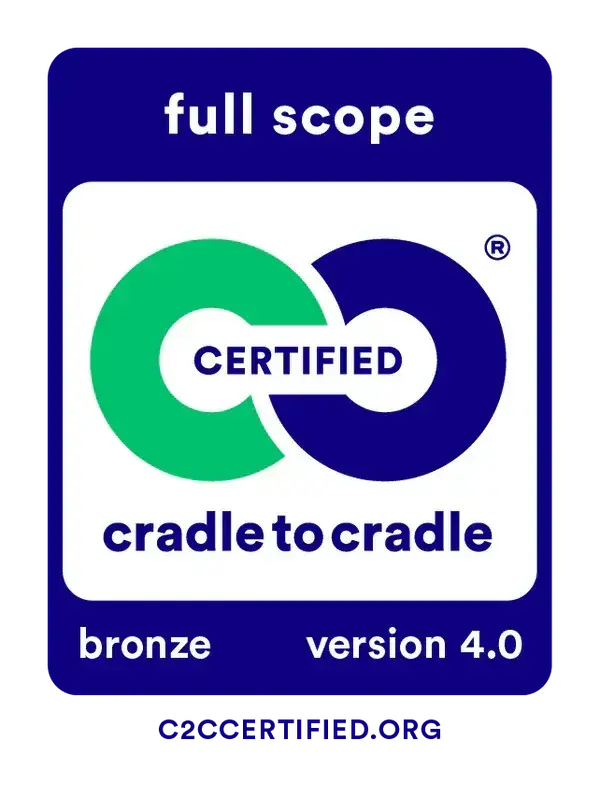
Download our certificates here


Sustainability is not an empty promise for Pan-All. Our environmental management system is actively monitored and evaluated by an environmental team that monitors performance, takes corrective actions and conducts internal audits.
With annual executive reviews of environmental policies and annual measurements of carbon emissions and water and energy consumption, we ensure that our impact continues to decrease and our processes become increasingly sustainable.
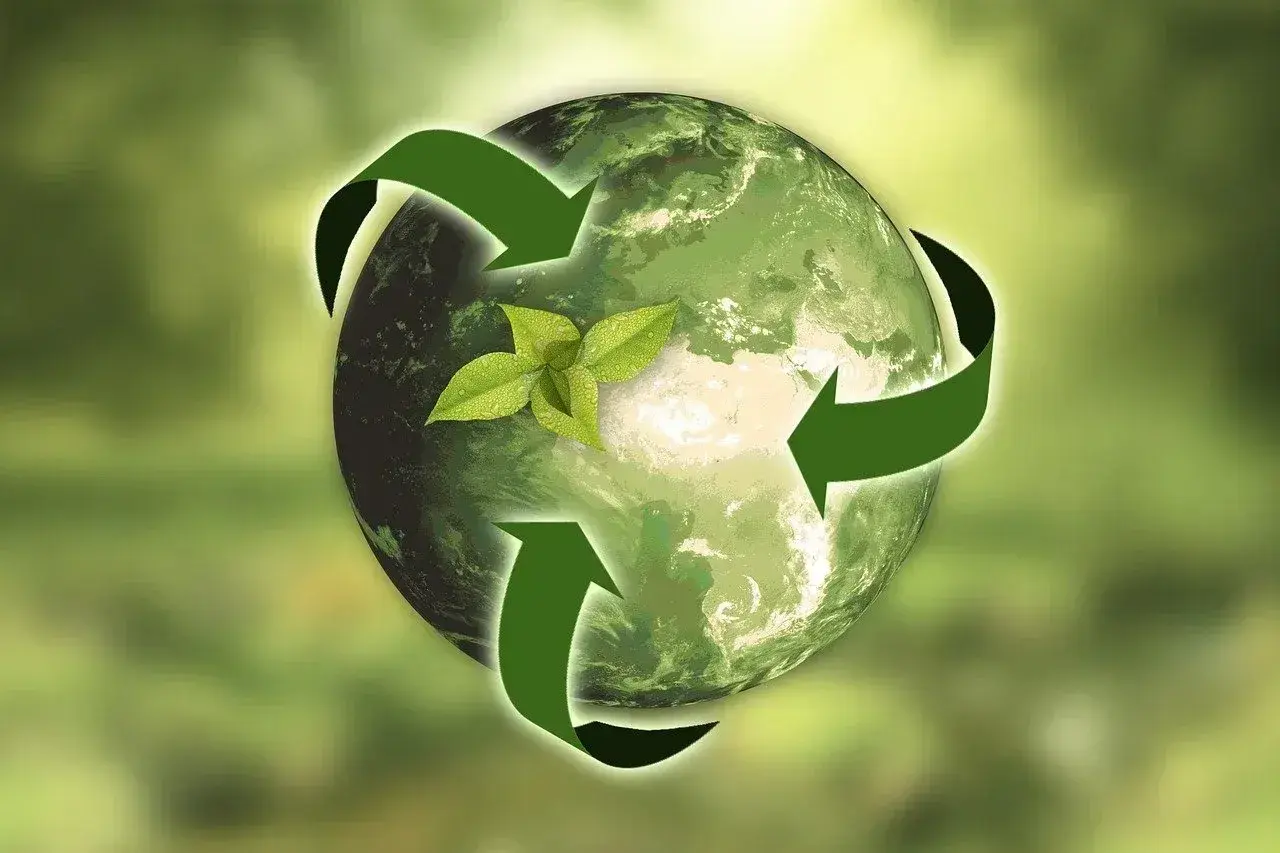

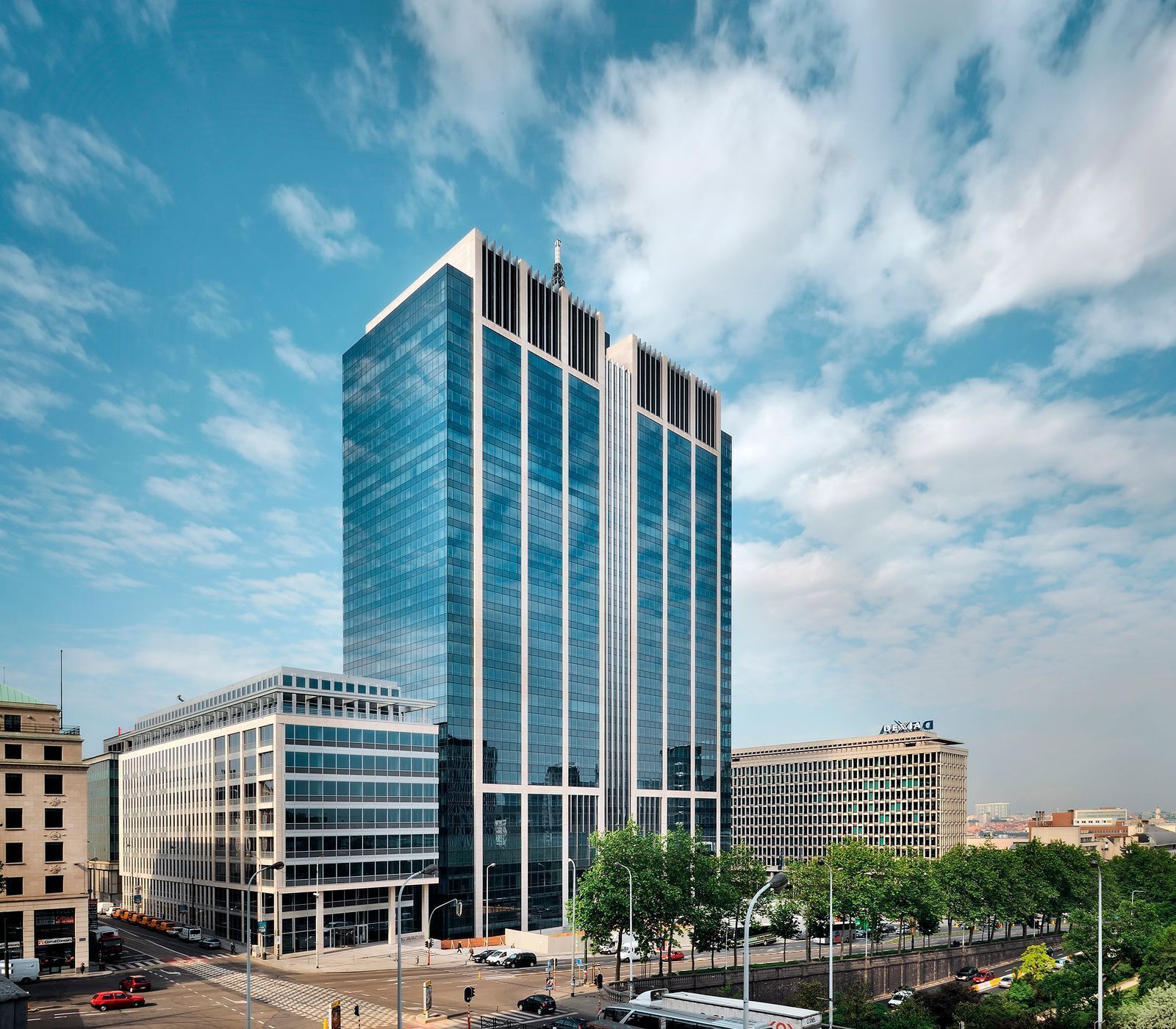
Our Code of Conduct and Human Rights Policy is available in pdf format upon simple request. Request it here : info@pan-all.be
With our Human Rights Policy, we aim to consider the main risks to human rights on and off our production site. In this HRP, we describe key action points for improving human rights related to the company's own operations, supply chain, product cycles and recycling, relevant communities and other relevant stakeholders.

We subscribe to the United Nations Declaration on Human Rights and the International Labor Organization's Declaration on Fundamental Principles and Rights at Work. We expect our staff to be respectful in all their professional interactions with colleagues, customers, visitors and other business partners. When violations occur, appropriate disciplinary action will be taken. Our approach is consistent with the spirit and intent of the United Nations Guiding Principles, the United Nations Universal Declaration of Human Rights, the United Nations Sustainable Development Goals, the Organization for Economic Cooperation and Development (OECD) Guidelines for Multinational Enterprises, the Declaration on Fundamental Principles and Rights at Work of the International Organization (ILO), the Guiding Principles on Business and Human Rights of the United Nations and the Modern Slavery Act 2015, with respect for human rights, fundamental freedoms, democratic principles and standards set forth in the International Bill of Human Rights.
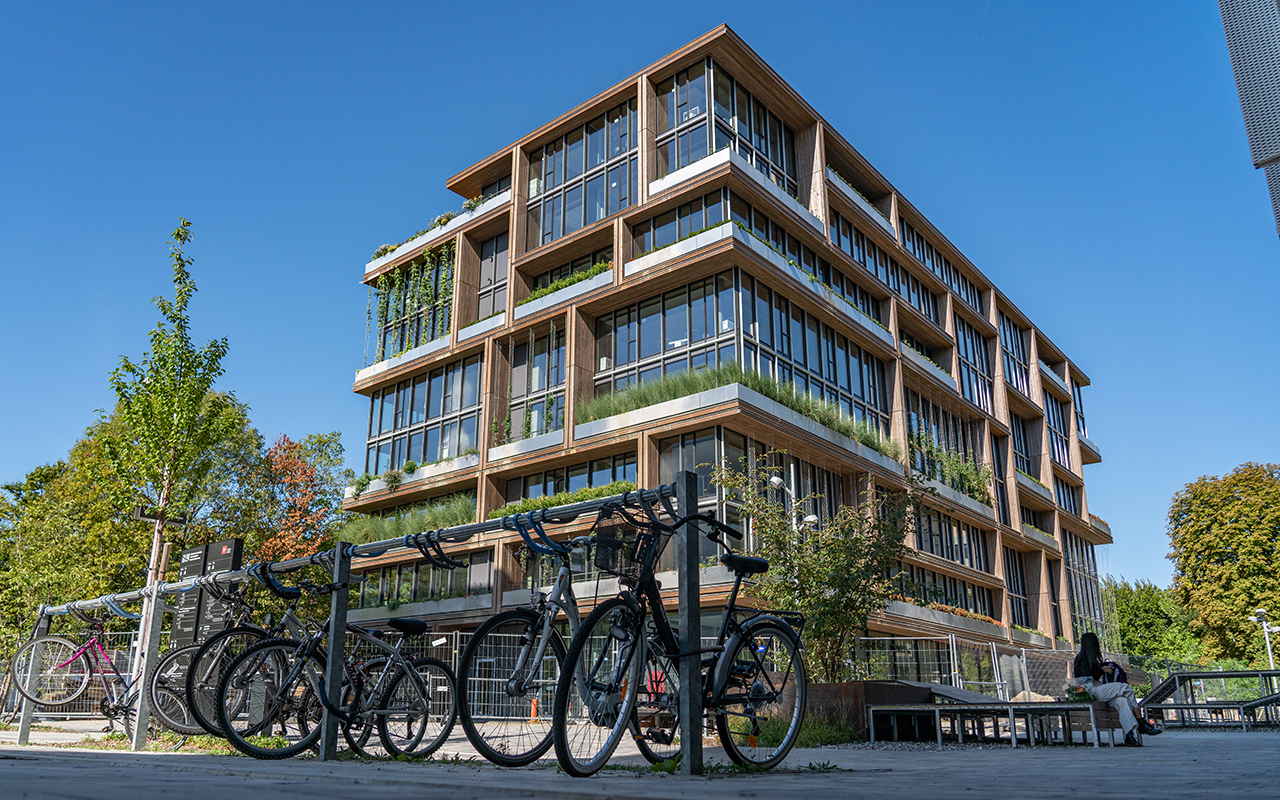


This describes the main risks in the field of human rights:
Child labor externally, Discrimination, Right to fair remuneration, Monitoring the working environment, Environmental impact externally and internally, Right to trade union and collective bargaining, Progress action points and objectives, Transparency and accountability
Main action points:
Child labor externally
The risk of possible involvement with child labor is mainly in the supply chain, especially with foreign suppliers. We therefore try to order as much as possible in Belgium and our neighboring countries. With our further foreign suppliers we have implemented a strict policy against child labor, inquire about checks with these suppliers.

Progress action points and objectives for the coming years:
Number of suppliers contacted regarding Human Rights and Child Labor in particular:
2023: 0 / 2024: in progress: objective 7 suppliers / 2025: objective 29 suppliers
Number of suppliers per geographic location:
Belgium: 22 / Netherlands: 3 / France: 2 / Germany: 1 / Poland: 1
Action points 2 to 6: Human Rights awareness
All department heads will follow an online Human Rights training at least once a year. The managers will in turn pass this on to their subordinates. This will be repeated on a regular basis.
In 2024, 6 department heads participated in the Amnesty International Introduction to Human Rights.
Objective for participation in 2025: 6


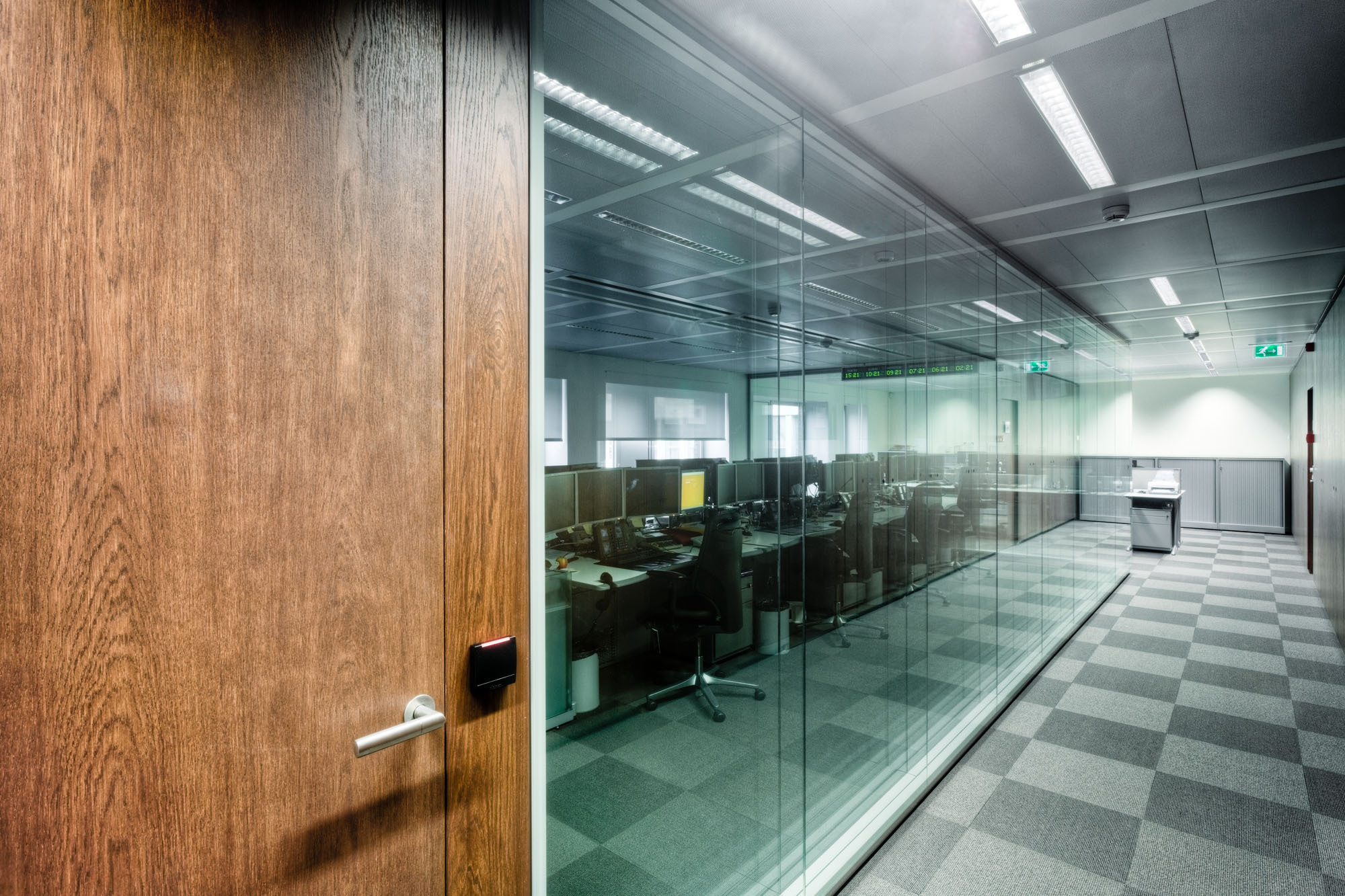
For relocatable partition wall systems, the integration of recycled and/or responsibly produced renewable materials is limited by several supply chain factors and technical aspects. Below are the main constraints by material stream:
Current constraints: the availability of proven recycled materials in aluminum window frames, glass panels with proven recycled materials from suppliers, the availability of wood-based panels with PEFC or FSC® certification (100%), and the long-term stability of mineral wool with recycled materials or bio-based renewable fibers.

- The availability of aluminum extrusion blocks with a verified post-consumer recycled (PCR) content above ~30% is limited in the regional supply market.
- Higher PCR contents (>40-50%) can lead to inconsistencies in mechanical properties (e.g., strength and corrosion resistance), which directly affects product durability and safety compliance.
- Many suppliers currently supply aluminum with a mix of pre-consumer and post-consumer content, but cannot provide traceable, third-party verified PCR declarations above 20-30%.
Feasibility Explanation:
- The current use of ~20% pre-consumer and ~5% post-consumer recycled aluminum represents the maximum reliably available and certifiable PCR content without compromising structural performance or security of supply.
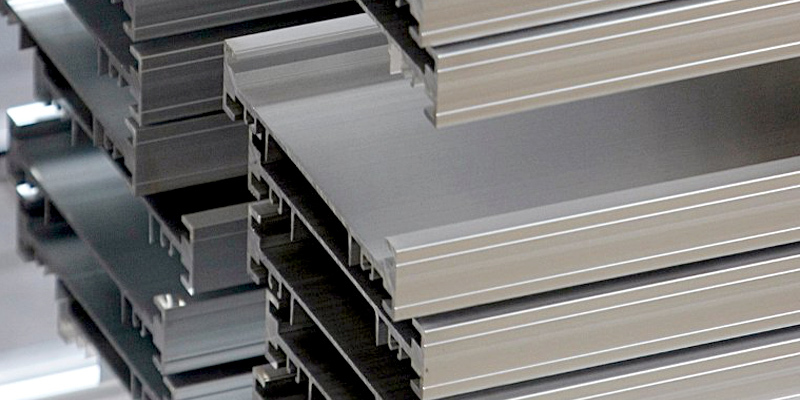

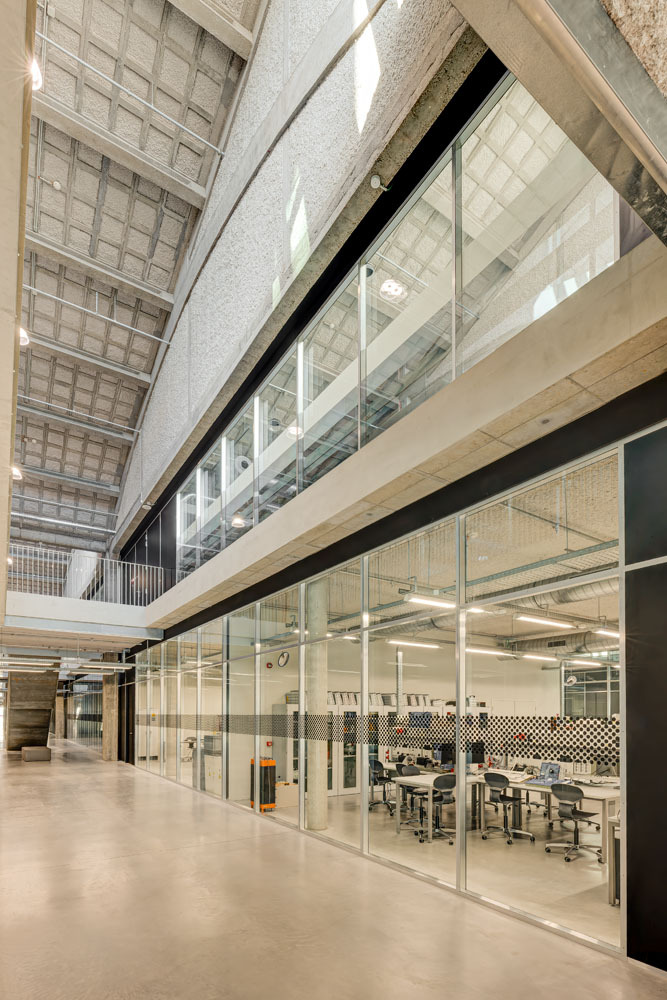
- Regional glass suppliers have limited access to clean post-consumer glass waste streams.
- Post-consumer glass waste often contains contaminants (ceramics, metals, coatings) that reduce clarity and mechanical integrity, which is critical for safety-rated glass partitions.
- Proven supply chains that offer ≥ 25% PCR glass waste with consistent quality and certification remain scarce.
Explaining Feasibility:
- The current addition of ~ 15% PCR glass waste reflects the highest stable and certifiable content currently achievable, without compromising glass quality or safety regulations.

- While FSC® Mix and PEFC certified panels are widely available, the supply of FSC® 100% or equivalent is more limited and involves longer lead times and higher costs. In addition, not all manufacturers offer these products.
- Rapid scale-up to 100% certified renewable fiber is limited by supplier availability and the need to maintain a stable production line.
Explaining feasibility:
- Current procurement of panels with ~70% pre-consumer recycled fiber and FSC® Mix certification represents the highest feasible level given current market conditions.
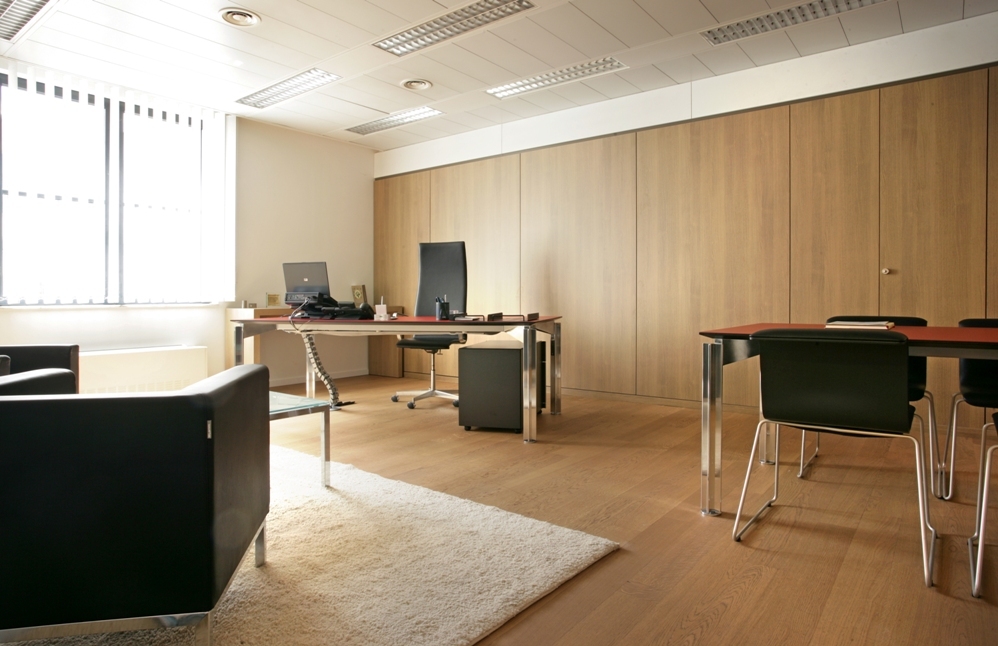

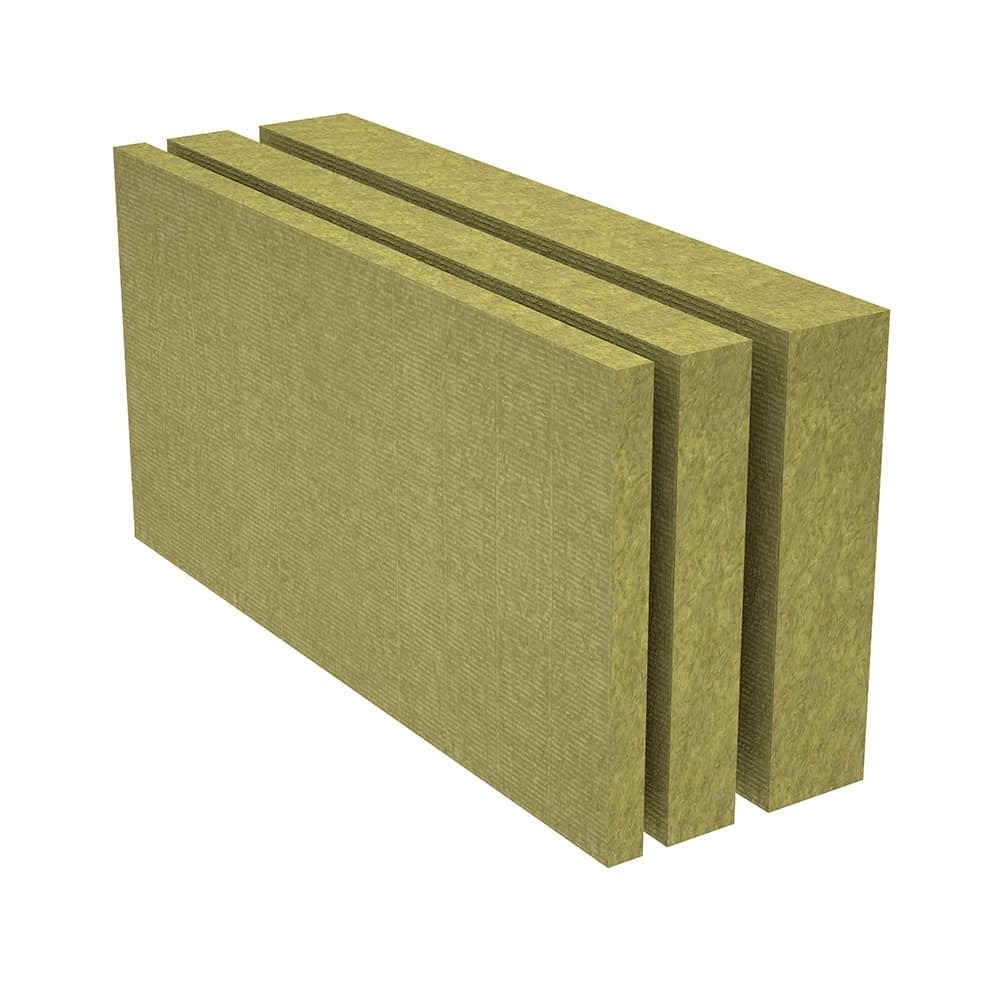
- Mineral wool insulation already contains ~25% recycled content, but further increases are limited by the stability of the raw material blends. Higher recycled input often leads to a possible decrease in long-term fire resistance and acoustic performance. Long-term stability remains to be tested.
- Biobased alternatives (e.g., cellulose, hemp, flax) are promising, but face scalability issues, including inconsistent quality, limited compliance with fire ratings and limited regional supplier networks.

(Pope John Paul II)
Given these constraints, current levels of proven post-consumer recycled and responsibly sourced renewable materials incorporated into our relocatable partition systems represent the maximum achievable at this time, balancing supply availability, material performance and product safety requirements.
There are continuous R&D initiatives and ongoing supplier involvement to increase these levels as market and technical conditions allow.



Despite our very low water consumption, we keep a close eye on our usage.
Consumption in 2021 was 185m³, in 2022 174m², in 2023 146m³ and 131m³ in 2024.
Source of the extracted water: Water company: De Watergroep
Water stress in the area surrounding our site is extremely high (>80%).
Wastewater discharge per treatment level: when wastewater is discharged into the municipal sewer system, 100% is untreated.
Wastewater discharge goes to the Geraardsbergen wastewater treatment plant.


PAN-ALL and its management are responsible for implementing this policy. Our HR manager is responsible for the daily monitoring and implementation of this policy. Its compliance will be regularly monitored by management. Management is responsible for reviewing the Human Rights Risk Analysis on a regular basis with the HR Manager. We ensure that this code is communicated to every employee and that appropriate training is provided. Any violations of this policy will be subject to disciplinary action. Reporting -in good faith- a violation of the code guarantees the continuity of PAN-ALL. Each employee should therefore not feel intimidated to report violations to his or her superior. If appropriate action has still not been taken, after a breach of this code has been reported to the superior, the employee is requested to bring the matter to the attention of the internal supervisor.
Periodic revision : our HR Policy is periodically reviewed and updated by PAN-ALL management.